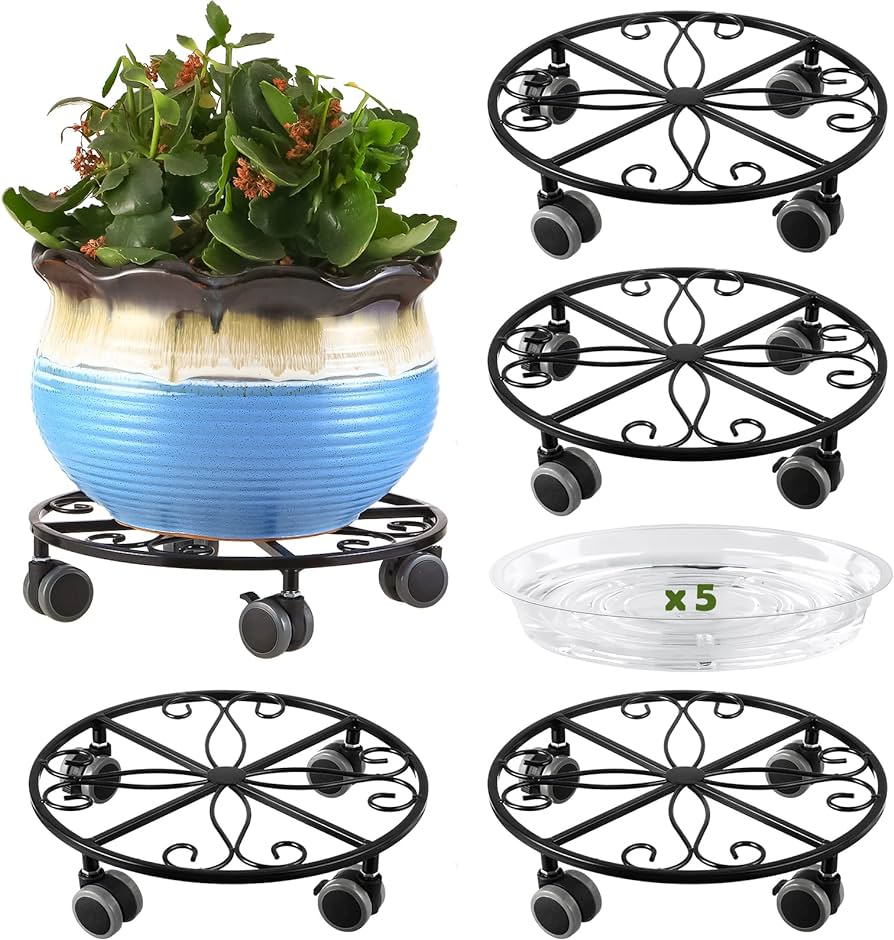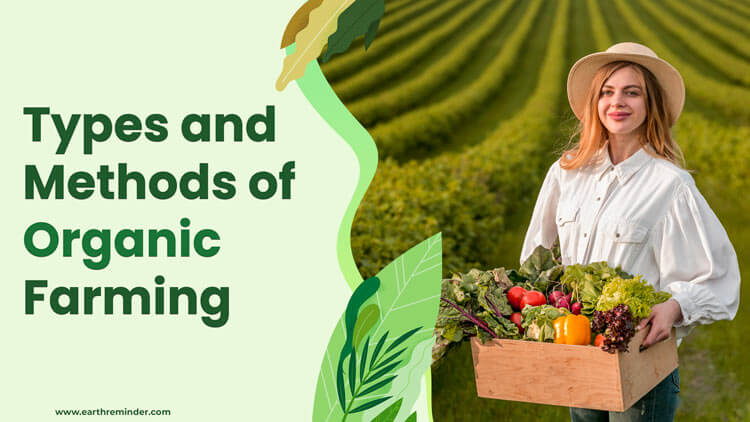The Science Behind Organic Gardening: Understanding the Principles of Sustainable Practices. Discover The secrets of organic gardening! Learn easy, sustainable practices that boost your garden’s health while helping The planet. Happy planting!
What is The Science Behind Organic Gardening: Understanding The Principles of Sustainable Practices & how does it work?

Organic gardening employs natural methods. This practice emphasizes biodiversity & soil health. Healthy ecosystems sustain growth without synthetic chemicals. Organic gardeners focus on compost, crop rotation, & natural pest control. Understanding ecosystems fosters balance within gardens. Microorganisms play a vital role in nutrient cycling. Soil quality drastically influences plant health. Healthy soil supports robust plants, ensuring healthy produce.
Brief history of The Science Behind Organic Gardening: Understanding The Principles of Sustainable Practices
Organic gardening traces back thousands of years. Ancient cultures utilized natural farming methods extensively. With industrialization, synthetic fertilizers became popular. Many gardeners sought healthier alternatives in response. In 1940s, pioneers like Sir Albert Howard advocated natural methods. Over decades, awareness surrounding organic practices grew significantly. Today, organic gardening represents a global movement.
How To implement The Science Behind Organic Gardening: Understanding The Principles of Sustainable Practices effectively
Start with healthy soil management strategies. Utilize composting techniques for rich nutrients. Select native plants suited for specific climates. Encourage beneficial insects through companion planting. Create a diverse ecosystem within gardens. Regularly monitor plants for pests & diseases. Implement crop rotation annually for soil health. Use organic mulch To retain moisture.
Key benefits of using The Science Behind Organic Gardening: Understanding The Principles of Sustainable Practices
Organic gardening improves soil health dramatically. This practice supports biodiversity in natural habitats. Healthy ecosystems reduce pest outbreaks efficiently. Produce grown organically tastes better & contains more nutrients. Local food systems strengthen communities & reduce carbon footprints. Avoiding chemicals promotes environmental sustainability. Gardens enhance mental well-being & physical activity.
Challenges with The Science Behind Organic Gardening: Understanding The Principles of Sustainable Practices & potential solutions
Transitioning from conventional To organic gardening can be challenging. Initial costs may deter many new gardeners. Time & patience are essential for creating healthy ecosystems. Pest control requires active management & attention. Educating oneself on organic practices takes dedication. Partnerships with local organizations can ease challenges. Community resources help provide valuable information.
Future of The Science Behind Organic Gardening: Understanding The Principles of Sustainable Practices
Future trends focus on automation & technology integration. Innovative tools streamline gardening processes effectively. Urban gardening & vertical farming gain popularity rapidly. Sustainable practices drive increased consumer demand for organic products. Research in regenerative agriculture continues To evolve. Education about sustainable practices will expand globally. Collaborative projects can enhance food security initiatives.

The Principles of Organic Gardening
Organic gardening emphasizes techniques that cultivate healthy ecosystems. These include using natural fertilizers, crop rotation, & composting. Each method aims at enhancing soil fertility while minimizing negative impacts on biodiversity.
Understanding specific principles provides insight into effective practices. One essential component involves avoiding synthetic chemicals. Natural pest control techniques must observe. For more information regarding organic gardening methods, visit this resource.
Careful selection of plant species promotes environmental health. Companion planting encourages symbiotic relationships among plants. These relationships help reduce pest infestations & improve pollination rates.
Soil Health & Fertility
Healthy soil serves as foundation for vibrant gardens. Maintaining soil structure, texture, & nutrient balance matters. Organic matter like compost enhances soil richness & moisture retention. Regular testing allows gardeners To monitor pH levels & nutrient deficits, leading To informed decisions.
Microorganisms play crucial roles in soil health. They decompose organic matter, releasing essential nutrients. Beneficial bacteria & fungi establish symbiotic relationships with plants, enhancing nutrient uptake.
Crop rotation also prevents soil depletion. Different crops absorb unique nutrients, preserving soil’s vitality. Rotating crops reduces pest & weed pressure, fostering a flourishing ecosystem.
Water Management in Organic Gardening
Sustainable water use enhances gardening efficacy. Efficient irrigation methods minimize water waste while ensuring plants receive necessary moisture. Drip irrigation proves particularly effective for direct watering.
Capturing rainwater also offers an eco-friendly alternative. Rain barrels can collect precious moisture from rooftops, serving as supplemental irrigation during dry spells.
Mulching retains soil moisture while suppressing weeds. Organic mulches, such as straw or wood chips, break down over time. Thus, they add nutrients back into soil, supporting plant growth.
Natural Pest Management
Pest control requires an integrated approach. Natural predators, such as ladybugs & spiders, can reduce pest populations. Encouraging biodiversity attracts these beneficial insects, ensuring a balanced ecosystem.
Physical barriers, like row covers, protect vulnerable plants. These barriers prevent insects from reaching crops without harming natural predators.
Planting herbs & flowers can draw beneficial insects. For example, dill & cilantro attract hoverflies, which consume aphids. Using diverse plant varieties fosters a more resilient garden.
Benefits of Organic Gardening
Engaging in organic gardening offers various benefits. Healthier food options provide better nutrition. Without synthetic chemicals, produce becomes safer for consumption.
Enhancing local biodiversity encourages ecosystem balance. A diverse garden attracts pollinators & natural pest controllers. Organic gardening fosters healthier humans & happier ecosystems.
Additionally, organic gardening practices can lead To cost savings. Homemade compost reduce reliance on expensive fertilizers. By nurturing soil health, gardens often yield more bountiful harvests.
Principles of Sustainable Practices
Sustainable practices extend beyond organic gardening. These methods encompass wider principles that promote ecological balance. Proper resource management ensures future generations enjoy diverse ecosystems.
Using perennial plants in gardening supports ecological stability. Perennials offer consistent yields while requiring less maintenance. They develop strong root systems, preventing soil erosion & promoting water retention.
Community involvement strengthens sustainable gardening. Local workshops & educational programs empower gardeners. Sharing knowledge cultivates a sense of belonging & responsibility.
Featured Principles of Organic Gardening 🌱
- Natural fertilizers
- Crop rotation
- Soil health enhancement
- Integrated pest management
- Water conservation techniques
- Biodiversity promotion
Understanding Organic Certification
Gaining organic certification provides numerous advantages. Certification validates organic practices, assuring customers of product quality. Understanding certification requirements encourages adherence To sustainable gardening methods.
Several organizations oversee organic certification. USDA’s criteria offer guidelines for farmers & gardeners. For a detailed overview, consult this article.
Seeking certification involves documenting practices & inputs. Gardeners must track inputs used, including seeds & fertilizers. This diligence ensures transparency & accountability in organic gardening.
Personal Experience in Organic Gardening
Years ago, I embarked on my organic gardening journey. I learned various techniques through trial & error. Relating my experiences with others fostered personal growth & expanded understanding of sustainable practices.
Future Trends in Organic Gardening
The future of organic gardening appears promising. Advances in technology allow greater insights into soil health. Researchers continuously explore innovative solutions, enhancing sustainable methods.
Vertical gardening grows in popularity. This technique optimizes space, making gardening accessible in urban settings. Compact gardens still yield abundant crops while reducing carbon footprints.
Additionally, regenerative agriculture practices emerge as The forefront of sustainability. These practices focus on replenishing ecosystems while producing healthy food. Awareness & collaboration foster a circular economy.
Concluding Thoughts on Sustainable Practices
Understanding principles of organic gardening truly transforms how people grow plants. Applying these sustainable practices cultivates a healthier planet. Awareness & action underpin this vital movement, ensuring future generations reap benefits.
What is Organic Farming? | Agriculture | Biology | FuseSchool
The Science Behind Organic Gardening: Understanding the Principles of Sustainable Practices What is Organic Farming? | Agriculture | Biology | FuseSchool The Science Behind Organic Gardening: Understanding the Principles of Sustainable Practices
The Fundamentals of Organic Gardening
Organic gardening promotes health, biodiversity, & sustainability. This method advocates planting crops without synthetic fertilizers, harmful pesticides, or genetically modified organisms. It focuses on enriching soil quality & utilizing natural processes. Understanding these fundamental principles helps cultivate a sustainable environment.
Sustainability encompasses actions benefiting both producers & consumers. This balance enhances ecosystems while providing nutritious produce. Organic gardening relies on methods such as crop rotation, companion planting, & mulching. These strategies create a rich ecosystem that thrives, attracting beneficial insects & fostering healthy soil.
A holistic approach supports a diverse range of plants while providing essential nutrients. This garden symbiosis limits pest populations & diseases, allowing for healthier crops. Choosing organic practices empowers gardeners, encouraging mindful consumption & connection with nature.
Soil Health & Its Importance
Soil health stands as a cornerstone for successful gardening. Healthy soil sustains various microorganisms & nutrients, creating a balanced environment. Organic gardeners prioritize soil management techniques, ensuring sustainability over time. Enriching soil organic matter builds resilience against pests & diseases.
Practices such as cover cropping & composting play crucial roles. Cover crops prevent erosion & improve soil structure, while compost adds nutrients back into earth. Exploring methods promotes biodiversity by fostering essential life forms within soil. For more detailed information on organic practices, read more about organic farming. Furthermore, intercropping systems, like those found in Indigenous practices, showcase amazing examples of ecological harmony. Check out Three Sisters gardening for inspiration.
Understanding soil horizons helps gardeners identify nutrient levels & structure. Analyses guide fertilization practices, ensuring adequate nutrient availability. Ensuring healthy soil not only benefits crops but also supports climate resilience, contributing through carbon sequestration.
Water Management in Organic Gardening
Water management remains vital for sustainable growth. Organic gardens utilize techniques that minimize water usage. Effective irrigation practices, such as drip irrigation, conserve resources while delivering moisture directly To roots. These techniques enhance plant growth & reduce evaporation.
Rainwater harvesting acts as another effective strategy. Capturing rainwater provides a natural source for irrigation. Utilizing this resource reduces dependency on municipal supply, promoting ecological balance. Organic gardeners often implement mulching practices, helping regulate soil temperature & moisture retention.
Understanding seasonal & local weather patterns aids optimal planning. Knowing when To plant, water, & harvest maximizes yield potential. By paying attention & adapting, gardeners ensure crops receive necessary water, leading To a flourishing organic garden.
Pest Management Strategies
Effective pest management requires a proactive approach. Organic gardeners use integrated pest management (IPM) techniques that focus on prevention. Options include encouraging beneficial insects, such as ladybugs, which feed on harmful pests. Maintaining a diverse plant community draws various insects into gardens.
Natural repellents offer additional protection against unwanted insects. Employing neem oil or insecticidal soap helps manage infestations sustainably. These methods minimize harm, ensuring plants remain healthy without chemical exposure. Keeping plants healthy through nutrient-rich soil also makes them less appealing To pests.
Regular monitoring serves as a remedy for early detection of issues. Quick identification allows immediate action, ensuring minimal harm yet preserving ecosystem balance. Effective pest management not only supports crop health, but also fosters environmental wellbeing.
Benefits of Organic Practices
Embracing organic gardening provides numerous advantages. For one, organic produce offers superior nutritional density. Studies show organic fruits & vegetables often contain higher levels of vitamins & minerals compared To conventionally grown counterparts. Consumers benefit greatly from choosing organic options.
Furthermore, organic practices nurture ecological balance. By avoiding harmful chemicals, organic farms foster diverse ecosystems. This biodiversity sustains wildlife & essential pollinators, creating a thriving environment. Additionally, these practices promote soil health, ensuring future generations can enjoy robust food systems.
An added benefit comes in form of enhanced flavor. Many gardeners notice that organic produce boasts deeper, richer tastes. Consumers often prefer these flavors, fostering a connection with locally sourced food. Growing food organically creates a healthier relationship between individuals & their environments.
Organic Gardening Methods Compared
| Method | Description | Benefits | Challenges |
|---|---|---|---|
| Permaculture 🌿 | A design system for sustainable land use. | Enhances biodiversity & minimal maintenance. | Requires extensive planning & design. |
| Companion Planting 🌼 | Planting different crops together for benefits. | Improves pest control & yields. | Needs careful research for plant pairings. |
| No-Till Farming 🛠️ | Minimal disturbance of soil structure. | Preserves soil health & moisture. | May require specialized equipment. |
Community Involvement & Organic Gardening
Community involvement fosters a greater connection with organic gardening. Sharing resources expands knowledge among local gardeners. Workshops & events promote awareness of sustainable practices. This networking encourages collective responsibility towards caring for environments.
Participating in community gardens creates shared spaces for organic gardening enthusiasts. A sense of belonging blossoms as individuals contribute labor & care. These gardens often serve as educational hubs, teaching others about healthy food systems & sustainable practices. They nurture relationships while promoting health & wellness.
Moreover, community supported agriculture (CSA) programs enhance local economies. These initiatives connect consumers directly with producers. By subscribing To CSAs, individuals support local farms while receiving fresh, organic produce. This relationship strengthens local markets & promotes sustainable agriculture.
Personal Experience in Organic Gardening
During my journey in organic gardening, I enjoyed unique challenges. I learned various techniques & embraced nature’s rhythms. Each season taught me essential lessons about patience, resilience, & adaptability. Watching crops thrive became fulfilling, knowing my efforts fostered sustainable practices.

What is The scientific study of organic gardening?
The scientific study of organic gardening is often referred To as agroecology. It focuses on The relationships between plants, animals, & The environment, using organic methods To cultivate healthy ecosystems.
What differentiates organic gardening from traditional gardening?
Organic gardening differs from traditional gardening primarily in its use of natural inputs & techniques. It avoids synthetic fertilizers & pesticides, promoting biodiversity, soil health, & sustainability.
What are The key principles of organic gardening?
The key principles of organic gardening include maintaining soil health, promoting biodiversity, using organic materials, & managing pests naturally. These principles aim To create a balanced ecosystem in The garden.
How does organic gardening affect soil health?
Organic gardening enhances soil health by increasing organic matter, improving soil structure, & promoting beneficial microbial activity. This leads To better nutrient availability & water retention.
What are The environmental benefits of organic gardening?
Organic gardening benefits The environment by reducing pollution, conserving water, & encouraging biodiversity. It supports sustainable practices that help mitigate climate change & protect ecosystems.
Can organic gardening be practiced on a large scale?
Yes, organic gardening can be scaled up To large agricultural practices. Organic farming methods can be implemented in commercial agriculture, contributing To sustainable food systems while meeting consumer demand for organic produce.
What role do insects play in organic gardening?
Insects play a crucial role in organic gardening by pollinating plants & controlling pests. Beneficial insects, like ladybugs & lacewings, can help minimize pest populations, contributing To a healthy garden balance.
How do organic gardeners manage pests?
Organic gardeners manage pests through methods such as companion planting, introducing beneficial insects, & using organic-approved pesticides. Cultural practices like crop rotation & proper sanitation also help prevent infestations.
Is organic gardening more labor-intensive than conventional gardening?
Organic gardening can be more labor-intensive than conventional gardening due To The reliance on manual labor for weed control & pest management. However, many gardeners find this approach rewarding & sustainable.
What types of plants are best for organic gardening?
The best plants for organic gardening are those that are well-suited To The local climate & soil conditions. Native plants, heirloom varieties, & a mix of vegetables, herbs, & flowers that support biodiversity can thrive organically.
Conclusion
In summary, organic gardening is all about working with nature rather than against it. By using natural methods, like composting & crop rotation, we can create a healthy environment for plants To thrive. These sustainable practices not only help our gardens flourish but also protect our planet for future generations. So,

whether you have a small balcony or a large backyard, embracing these principles can lead To beautiful & bountiful results. Remember, gardening should be fun & rewarding, so get your hands dirty, enjoy The process, & watch your garden grow naturally! Happy gardening!
